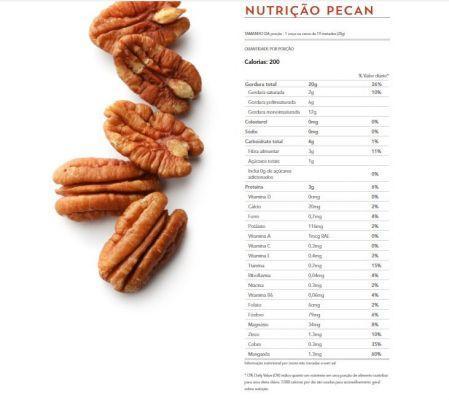
La Brazilian walnut it arrives on our tables as a dry fruit, often already shelled, sometimes still with the shell.
Call also Brazil nut or Amazon nut, it is endemic to the Amazon rainforest and is found mainly in Brazil but also in some neighboring countries, especially Peru.
The tree, Bertholletia excelsa, is particularly large: it can reach and exceed 50 meters in height and has fruits with a wooden exocarp, similar to coconuts, with seeds inside, which we call Brazilian nuts, arranged in ordered sections.
Much consumed in South America, in the country have suffered a slight decline in consumption, due to import prices. Despite this they are still often imported for the production of oil and sweets, they are in fact considered among the richest in natural fats and therefore ideal for a certain pastry.
Read also Foods that contain selenium >>
Characteristics of the Brazilian walnut
As mentioned, in the village we can find them already peeled, sold in a sealed bag, or still in the shell, dark, wrinkled, very hard and similar in shape to an orange wedge. The hard shell of the Brazilian nut is not easy to break with a simple nutcracker, generally it must first be exposed to high or low temperatures to compromise its solidity.
Freezing it is the ideal solution, since it does not compromise the internal oils as it would happen with high temperatures.
Another solution, of course, is the hammer. The seed inside is very light, with a smooth surface, with a slight darker integument sometimes present as a coating. The taste is very sweet, we can truly say that one Brazilian nut leads to another.
Properties of the Brazilian nut
We come to the properties and benefits of consuming Brazilian walnuts. With a 65% fat content, the Brazilian nut offers a very high percentage of protein, around 15%.
Presents very high levels of vitamin B1 and vitamin E, high levels of phosphorus and magnesium, but most of all it is one of the best natural sources of selenium and zinc.
A curiosity: the Brazilian nut naturally contains levels of radium, a radioactive element, which are very high when compared to other foods.
Even if it does not reach dangerous levels, this characteristic of the Brazilian walnut remains unique and interesting.
La most of the fats (oils) that make up the range of lipids of the Brazilian walnut falls within the unsaturated fats, especially oleic, linoleic and palmitic.
Let's go back to the selenium quantities in Brazil nuts and let's focus on this aspect. This characteristic gives the Brazilian nut a high anti-inflammatory power.
Selenium, an element very difficult to find through food, is in fact responsible for the anti-inflammatory properties of foods and their positive impact on mood.
Selenium is a powerful free radical antagonist.
This is accompanied by the presence of ellagic acid. The effects of selenium have also been studied in key antidepressants, as it would be able to stimulate the production of serotonin.
In addition to this, the Brazilian nut is recommended to improve heart health, For keep your thyroid under control and to protect the skin.
Read also Foods that contain zinc >>
Photo: serezniy / 123RF Stock Photo


























